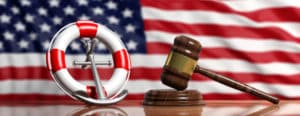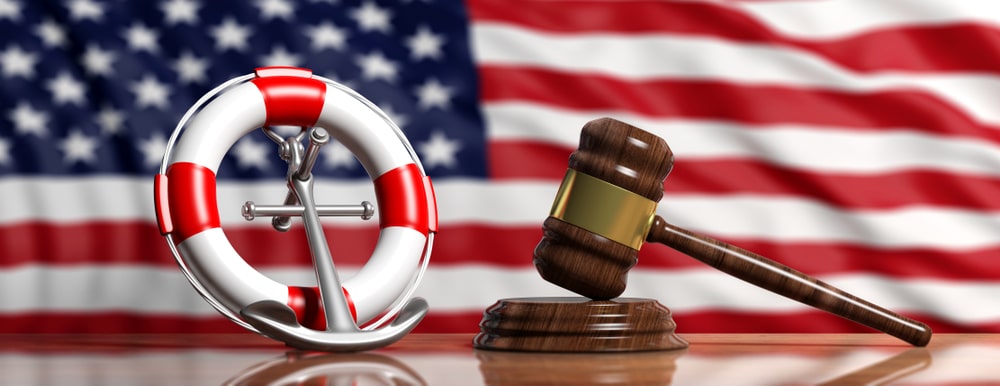
If you work in the maritime industry, you are well aware of the potential risks involved in this industry. But you may not be aware of how to manage your situation if you become injured on the job. Maritime workers are not covered by the same workers’ compensation programs that land-based employees are.
So, what should you do if you suffer a maritime injury? Contact a maritime offshore injury lawyer as soon as possible! Below, we provide information on maritime lawyers, what we do, and how we fight for your rights and the compensation and benefits that you deserve.
When Should I Call a Maritime Lawyer?
If you are involved in an accident or suffer an injury while working in a maritime occupation, you should call a maritime lawyer as soon as possible. There are several different maritime laws and benefit programs that may apply to your case. For example:
-
- If you are hurt in a crane accident while working in a shipyard, you may qualify for compensation under the Longshore and Harbor Workers’ Compensation Act (LHWCA).
- If you are hurt on a ship due to unsecured cargo, you may qualify for benefits under The Jones Act.
An experienced maritime lawyer at Kherkher Garcia, LLP will carefully review your injuries and the circumstances surrounding your injuries to determine what laws and benefits may apply.
Accidents and Injuries a Maritime Lawyer Can Help With
A maritime lawyer can help you with various accidents and injuries that occur during the course of employment in a maritime occupation. Some of the common accidents and injuries that our lawyers encounter include:
-
- Slip and Fall Accidents: Ships, docks, loading bays, and shipyards often involve slippery surfaces, wet conditions, clutter, and moving machinery. These are all contributors to slip and fall accidents.
- Dock and Pier Accidents: Dock and pier accidents can occur while loading or unloading heavy cargo or working on machinery. Vehicles in these areas are also at risk for accidents due to weather and surface conditions.
- Chemical Burns: Vessels, oil rigs, dredgers, and ships all use chemicals in their engine rooms, for machinery, and sometimes in storage. Chemical burns are common in the maritime industry and may be severe or even disabling.
- Enclosed Spaces: Many maritime occupations involve working in small, confined, or enclosed spaces. These areas are at risk for fire, toxic chemical exposure, lack of oxygen, and orthopedic injuries.
- Head Injuries: Seamen, deckhands, longshoremen, and other maritime workers are at a nearly constant risk for head injuries. Maritime environments are constantly moving and involve slippery surfaces, poor weather conditions, and many moving parts.
- Repetitive Use Injuries: Maritime workers often perform repetitive tasks that take a toll on muscles, joints, and soft tissue in the body.
- Loss of Limbs/Amputation: Sadly, it is not uncommon for maritime accidents to result in loss of a limb, or amputation. Crush injuries, in particular, often lead to necessary amputation.
- Falling Overboard: There are many potential injuries that may result from falling overboard a ship, or falling into the water from a dock, crane, or oil rig. The fall itself poses a threat of bruises, head injuries, or broken bones. Falling into the water poses the risk for hypothermia and drowning.
Many maritime injuries are avoidable if employers and maritime workers adhere to safety regulations, use proper safety gear, and have adequate training. Sadly, many maritime employers act negligently, which contributes accidents and injuries.
How is a Maritime Lawyer Different from Other Lawyers?
Maritime law, also known as admiralty law, is a distinct area of law that governs maritime-related activities, including shipping, navigation, and marine commerce. Maritime lawyers specialize in this area of law and are different from other lawyers in several ways:
-
- Specialized Knowledge: Maritime lawyers have specific knowledge of the complex laws and regulations that govern maritime activities, including international conventions, national laws, and industry-specific regulations.
- Unique Legal Issues: Maritime law involves unique legal issues that are not present in other areas of law. Such issues include vessel registration, marine insurance, cargo disputes, and maritime personal injury claims.
- Multijurisdictional Practice: Maritime law is a highly international and multijurisdictional area of law. Maritime lawyers must be familiar with the laws of multiple countries and have experience navigating legal disputes across different legal systems.
- Involvement in the Maritime Industry: Many maritime lawyers have experience working in the maritime industry. Some lawyers have experience with shipping companies, ports, or maritime regulatory agencies. This industry experience gives them a unique perspective on the legal issues facing their clients.
Overall, maritime law is a highly specialized area of law that requires unique knowledge and experience. Maritime lawyers are uniquely capable of handling the legal issues that arise in the maritime industry and provide valuable legal advice and representation to their clients.
How Maritime Lawyers Handle Injury Claims
When it comes to handling injury claims in the maritime industry, a maritime lawyer is an essential resource. At Kherkher Garcia, our lawyers take a thorough and individual approach to every case. We believe it is important to thoroughly investigate all aspects of the case and potential outcomes. Our process for handling maritime claims includes the following:
Investigation
A maritime lawyer will begin by investigating the circumstances of the injury to determine whether you have a valid claim. This may involve reviewing:
-
- Medical records
- Accident reports
- Video
- Witness statements
The Legal Process
Once we establish that a valid claim exists, our lawyers will work to determine the appropriate legal remedy. This may involve negotiating a settlement with the responsible party or pursuing a lawsuit in court.
One of the key challenges in handling injury claims in the maritime industry is navigating the complex web of laws and regulations that govern these activities. Our maritime lawyers have specialized knowledge of these laws and regulations and can use this expertise to ensure that your rights are protected.
Proving Negligence
Proving negligence is a key element of any personal injury claim, including those in the maritime industry. To prove negligence, your maritime claim must demonstrate four key elements:
- Duty: The responsible party had a duty of care towards you. In the maritime industry, this duty may arise from various sources, such as the owner or operator of a vessel, a shipyard, or a port.
- Breach of Duty: The responsible party breached their duty of care towards you. This breach could arise from a failure to follow industry standards, a violation of maritime regulations, or a failure to provide a safe work environment.
- Causation: The breach of duty was the cause of your injury. Your lawyers must show that the responsible party’s actions or inactions directly led to the injury.
- Damages: Your claim must show that you suffered damages as a result of the injury. These damages could include medical expenses, lost wages, pain and suffering, and other losses.
To prove negligence, our lawyers will use various types of evidence, including witness testimony, physical evidence, and expert testimony.
Damages Available in Maritime Injury Claims
In a maritime injury claim, damages refer to the compensation that you may be entitled to recover for your losses. The types of damages available in a maritime injury claim may vary depending on the specific circumstances of the case, but often include the following:
-
- Medical Expenses: This includes the costs of medical treatment, rehabilitation, medications, surgery, and other healthcare-related expenses resulting from the injury.
- Lost Wages: This refers to any income you lost as a result of the injury, including wages, loss of earning capacity, and other losses.
- Pain and Suffering: This includes compensation for physical pain, emotional distress, and other non-economic losses resulting from the injury.
- Loss of Consortium: If the injury has affected the injured party’s ability to maintain a relationship with their spouse or partner, they may be able to pursue compensation for loss of consortium.
- Punitive Damages: In cases where the responsible party acted with intentional or egregious misconduct, the court may award punitive damages to punish the responsible party and deter similar behavior in the future.
In addition to these damages, there may be other types of damages available in a maritime injury claim, depending on the specific circumstances of the case. A maritime lawyer can help you understand your legal rights and determine the types of damages you may be able to recover.
Can I Afford a Maritime Lawyer?
Personal injury victims often experience a great deal of anxiety about contacting a lawyer because they are afraid they can’t afford legal representation. At Kherkher Garcia, we understand that you are facing a tragic situation that is causing you physical, financial, and emotional pain. We believe that you should have access to competent and comprehensive legal representation without an added financial burden.
Our maritime lawyers operate on a contingency fee basis. That means that we do not collect fees from you until/unless we obtain recovery on your behalf. Additionally, we help our potential clients by not charging for consultations.
Learn More about Your Rights and Legal Options
Are you suffering from a maritime injury? Call Kherkher Garcia today to learn more about your rights and possible options to recover compensation. Let us put our more than 30 years of experience helping injury victims to work for you. Get started by calling us at 713-333-1030.


